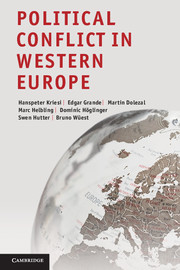Introduction
Whether or not environmental migrants can move to other countries may heavily depend on the immigration policies of those countries. Such policies constitute a core aspect of national sovereignty and the question of the composition of the national community. To understand how migration flows caused by climate change may develop, one needs to understand what actual migration policies look like and how they function. It is still an open question to what extent nation states have introduced more restrictive or liberal policies over the last decades and are able to control migration flows.
The first goal of this chapter is therefore to investigate the extent to which immigration policies have become more liberal or restrictive. As there is no legal category of environmental migrants, there are no policies that specifically address this particular migrant group (McAdam, 2012; see also Chapter 9 of this volume for a discussion of the development of policies at the global level). It can, therefore, be assumed that existing immigration regulations will be relevant in a similar way for the new immigration group of environmental migrants. This might, even more, be the case as it is debated whether or not environmental migrants can be distinguished from economic migrants as climate change affects the economy, which in turn leads to emigration (Beine and Parsons, 2015; Falco et al, 2018).
To understand how immigration policies affect migration flows (that may consist of environmental migrants), the second goal of this chapter is to test several arguments regarding how immigration regulations affect migrant inflows. It has been argued that the capacity to control immigration is more and more constrained by the high number of people who want to get access to a new country and, thus, that ‘borders are beyond control’ (Bhagwati, 2003: 98). On the other hand, it has also been emphasized that democracies have more and better means to control their borders than in earlier times (Freeman, 1994: 29). Besides the question of whether or not immigration policies matter, it is important to investigate how they matter, and under which circumstances they are more efficient.
